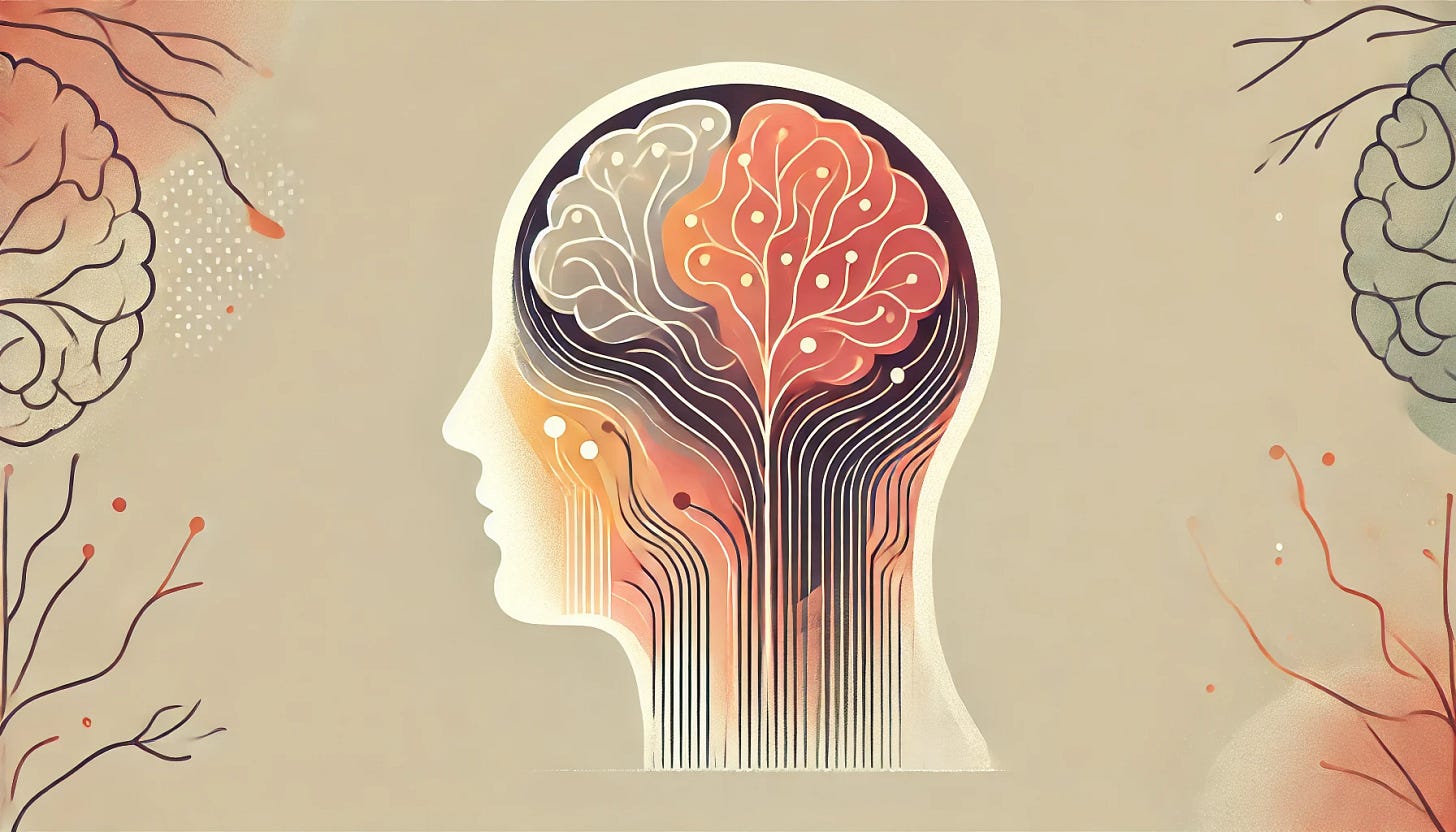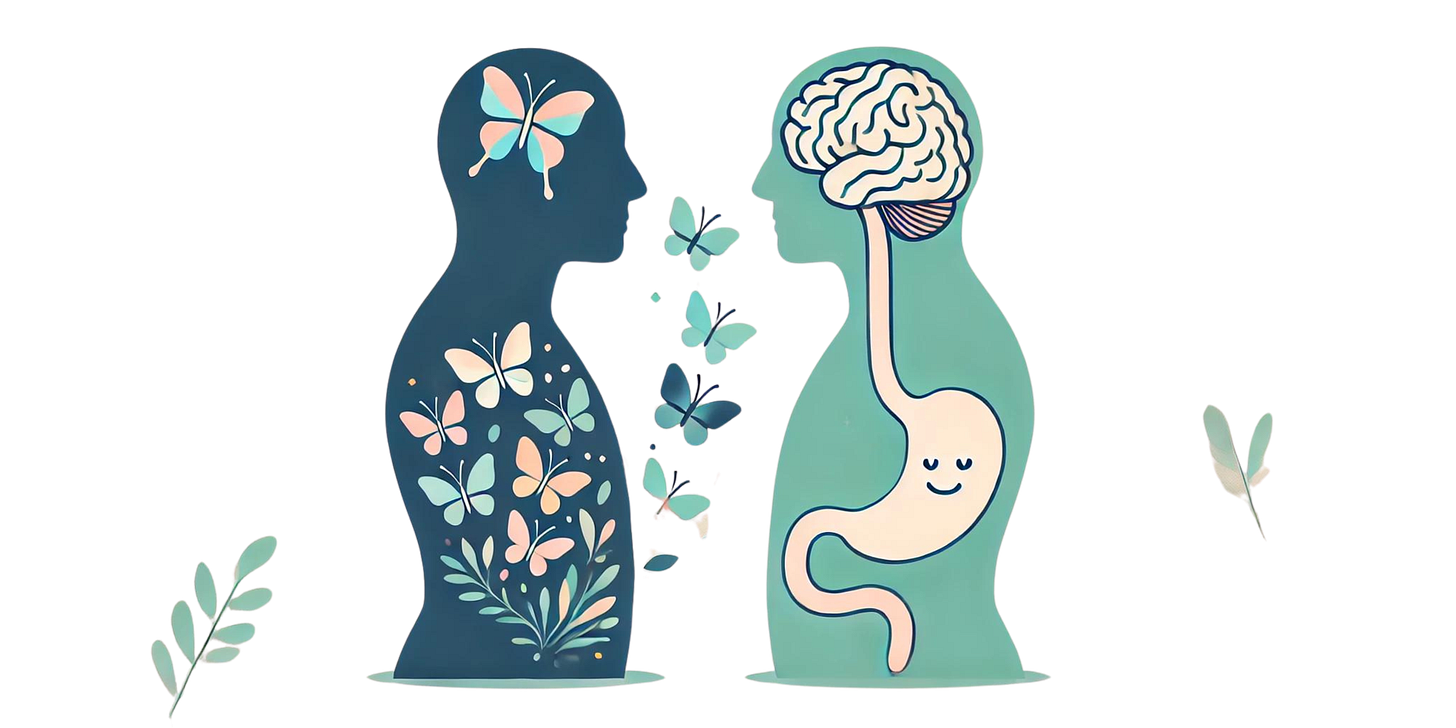Gut, Brain And Their Bond
Food = mood? Let's explore.
Ever wondered why you get a "gut feeling" about things? Well, it turns out there's a scientific explanation behind that sensation. It’s called the gut-brain connection or the gut-brain axis, and it’s a fascinating system that shows just how interconnected our bodies and minds really are.
This gut-brain axis is a complex network that links your central nervous system (which includes your brain and spinal cord) to your gut’s enteric nervous system, often referred to as your "second brain." This connection is bidirectional, meaning messages flow back and forth, and it’s essential for maintaining your overall well-being.
Here’s how it goes down: Your gut and your brain communicate through various channels including the nervous system and the hormonal pathways, particularly the HPA (hypothalamic-pituitary-adrenal) axis. This communication is crucial for regulating everything, from your mood to how well your immune system functions.
For instance, when there’s an inflammatory issue in your gut, it can send signals up to your brain that might lead to inflammation there, too. This neuroinflammation can mess with the production of neurotransmitters, those chemicals in your brain that regulate mood. The result? It can manifest as mood disorders like depression, anxiety and more.
But the plot thickens with the enteric nervous system, your gut's extensive network of neurons. This system is so large and complex that scientists call it the "second brain." It operates independently of the brain in your head, managing digestive processes like breaking down food, absorbing nutrients, and expelling waste without needing direct input from the central nervous system.
This means that your gut doesn’t just help digest your meals—it also plays a key role in influencing your emotions and psychological state. Ever feel nauseous before a big presentation or have an upset stomach during stressful times? That’s your gut-brain axis at work, reacting to your emotions and influencing your physical state.
Moreover, this connection suggests why psychological stress can lead to physical symptoms in the gut, and conversely, why gastrointestinal troubles could be linked to mental health issues. It’s a two-way street where trouble on one end is likely to cause issues on the other. This makes understanding the gut-brain axis crucial not only for physical health but also for mental health.
Communication in this axis gets disrupted, and people immediately lean towards medications for relief. Temporary relief does not resolve root causes. Instead what should be worked upon is the diet, lifestyle and interventions to correct such dysfunctions. Diet, for example, plays a huge role. Eating a balanced diet rich in fibre and devoid of processed foods can help maintain a healthy gut, which could lead to a happier, healthier brain. Regular exercise and stress management techniques like meditation can also help keep the communication between your gut and your brain clear and positive.
So, next time you experience "butterflies" in your stomach or a "gut-wrenching" feeling, remember that it's your body's sophisticated way of telling you how closely your gut and brain are linked. The more we learn about this connection, the better we can care for both our mental and physical health. Fascinating, isn’t it, how deeply our feelings are connected to our guts, literally!





